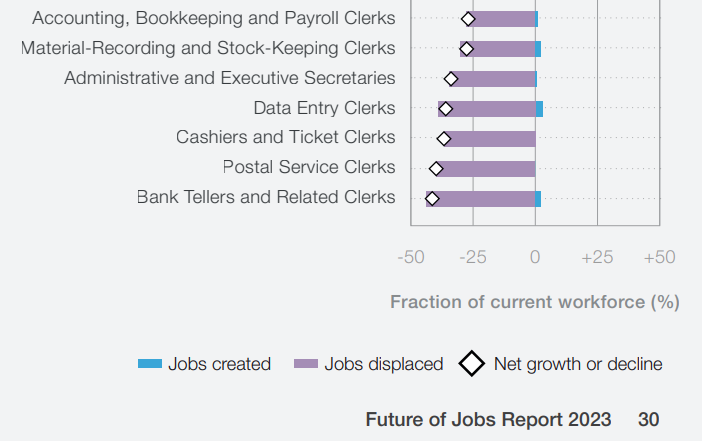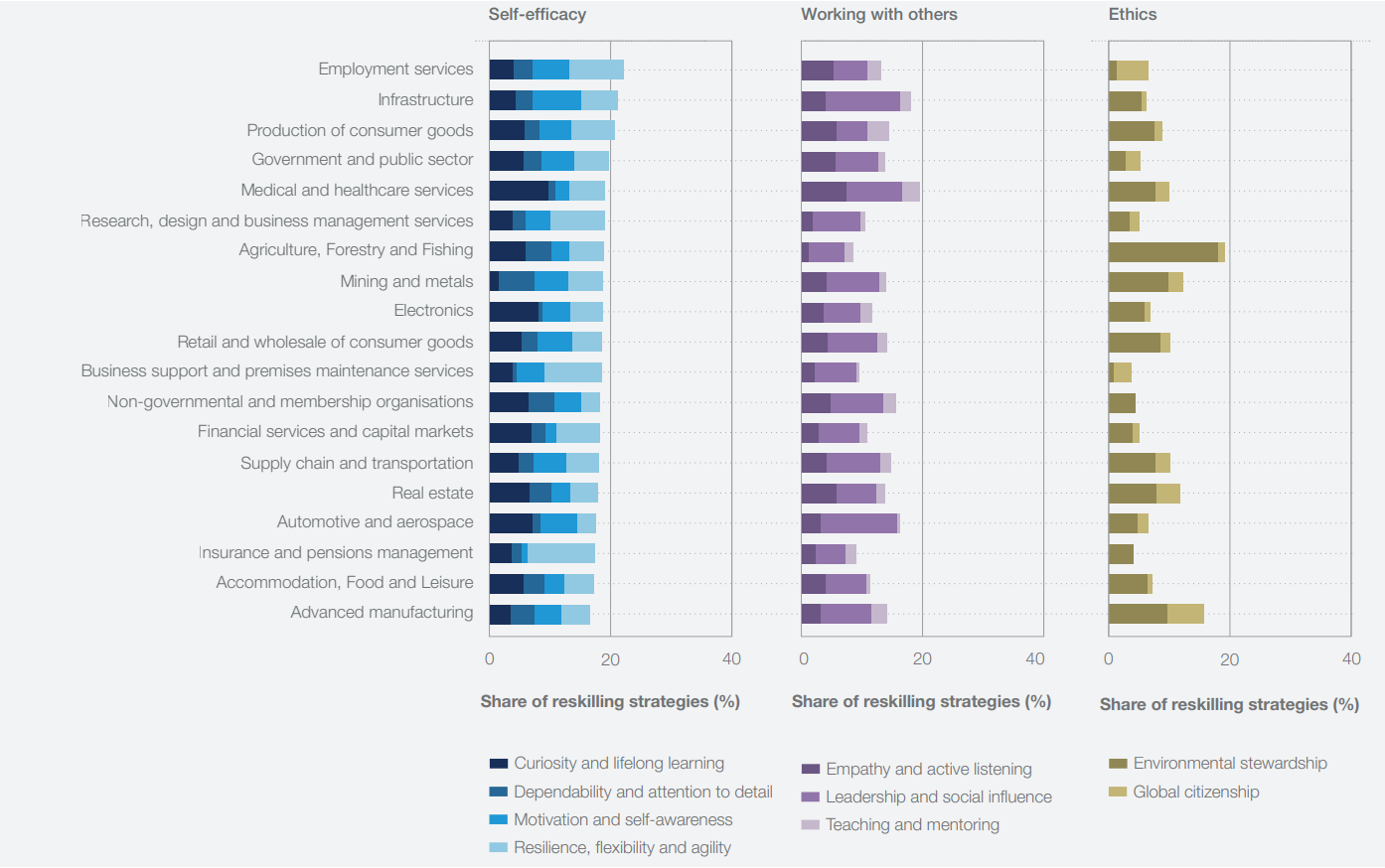As technology evolves, accountant soft skills are a critical element in building a profitable accounting firm and in the profession in general.
In this post, I’ll dive into
- What soft skills are
- Why you need them
- How to work on developing them
Let’s get started.
Table of Contents
What are Accountant Soft Skills Exactly?
Why are Accountant Soft Skills Required?
Top Soft Skills to Remain Relevant
What are Accountant Soft Skills Exactly?

Soft skills. It’s a phrase accounting professionals grow more familiar with each passing year in our industry. These particular skills also present an opportunity to set yourself, and your firm, apart from competitors.
What are they, exactly?
A quick search of the term shows that, According to Oxford Languages, “soft skills” are personal attributes that enable someone to interact effectively and harmoniously with other people.
Why are Accountant Soft Skills Required?
While technical skills remain essential in accounting, success now requires adapting to advancing technology.
As I laid out in my Future of Accounting Guide, the challenge for accounting firms is to stay relevant amid the rapid improvement of Machine Learning (ML) and Artificial Intelligence (AI).
This includes things like:
- Performing accounting technical skills and tasks
- Processing data and issuing accurate reports and forecasts
- Even handling things typically attributed to advisory, like reasoning and decision-making
Rather than a negative outlook, this presents an opportunity for firms to enhance their offerings and skills, aligning with the evolving landscape.
How do we remain relevant?
According to the Future of Jobs Report from the World Economic Forum in 2023, accounting is one of the largest decreasing jobs.
Why? Due to technology.

As you can see, the numbers are not very encouraging.
The report also indicates some of the top soft skills with the percentages representing the priorities that companies have for training their employees in these skills from 2023 to 2027.

The percentages are stacked to show the average importance given to different soft skills, and the remaining percentage is allocated to other skills in the broader taxonomy, such as technical skills and knowledge.
Considering what the data implies, there are two ways to remain relevant in the accounting world’s automated future.
One is to implement this technology for both use in your firm and for your clients. Setup, onboarding, and maintenance are very important (and often outsourced) aspects of ML/AI tools.
But even if you’re the best at implementing technology, it’s not enough. When certains situations arise, business owners want to speak with a real person, not look at a report or screen.
It doesn’t have to be on a worldwide scale (like what we’ve all been going through the past few years). Big industry changes, local economics, legislation, and a large number of other external/internal factors affect businesses enough to need someone with the expertise to help.
Top Soft Skills to Remain Relevant
We don’t need to go off the cuff to list out trending skills. The World Economic Forum has done the legwork, and little surprise, many at the top of the list are…soft skills.
Here’s a list of hyper-relevant skills for accounting:
- Critical Thinking and Analysis
- Problem Solving
- Creativity and Innovation
- Working with People
- Communication
- Active Learning
- Cultural Awareness
- Time Management
- Leadership
Let’s break down each, explain it a bit more, and relate it to staying relevant and serving your clients.
1) Critical Thinking and Analysis

What
One recent study, from the International Journal of Higher Education, explored critical thinking skills in accounting education. They defined the term as, “the mental process of analyzing or evaluating information.”
The study went on to break down multiple subskills necessary to think critically. Almost all of these point to using technology to understand what the numbers and data mean.
Why
There are several reasons why critical thinking is crucial in the face of increasing automation and the integration of AI in accounting. Here are some:
- Interpreting AI-generated Insights: Critical thinking allows accountants to evaluate the accuracy and relevance of AI-generated results
- Identifying and Addressing Biases: AI systems may inherit biases present in the data they are trained on
- Problem-Solving in Unforeseen Situations: Not all tasks are solvable by AI, especially the more complex ones
How
Instead of viewing AI tools as replacements, view them as collaborators.
Critical thinking allows accountants to leverage AI as a supportive tool while actively contributing their skills in interpreting, refining, and applying the insights generated.
2) Problem Solving

What
Problem-solving for accountants involves a systematic approach to finding effective solutions to problems that may arise in financial reporting, analysis, or other accounting-related tasks.
Why
This is a great soft skill for gaining and growing relationships with clients. The core of every business is solving problems. And it just so happens that a lot of businesses struggle with their accounting.
How
You have to position yourself as a firm that solves those problems, not just someone who provides tax and audit services. So, instead of “tax filing” it’s about “navigating the requirements for claiming the R&D Tax Credit.”
The difference? One tells what you do and the other communicates how you solve the problem (of your potential clients).
3) Creativity and Innovation

What
Accounting is often associated with rules, standards, and regulations, leaving not much space to go beyond the norms. That being said, introducing fresh ideas, and finding inventive solutions to various tasks and problems is a highly valued skill.
Why
Being creative isn’t only for artists. Advancements, no matter the sector, always come from out-of-the-box thinking.
More and more organizations encourage everyone on the team to come up with and suggest ideas or improvements. Daily work (to improve processes and productivity), creative financial solutions (to better serve clients), and virtually any other idea.
How
Accountants can use their creativity to streamline and improve their business processes. This might involve finding more efficient ways to handle routine tasks, automating certain processes, or introducing innovative technologies to enhance overall workflow.
4) Working with People

What
You can have all the technical skills an accountant should have, but it doesn’t mean you’re set for success. The ability to effectively collaborate, communicate, and build positive relationships within the workplace will always be a relevant soft skill that every accountant should have.
Why
When accountants team up effectively, it’s like a winning strategy. They get to make the most of each other’s strengths, swap knowledge, and play their part in making the whole team a success.
How
There are a number of ways to move the needle on teamwork (one of the big ones is the next soft skill), but it’s not all on you. Part of working together includes someone else. Your part is all about:
- Setting expectations (for yourself, the team, and clients)
- Devoting time to make yourself available to key people
- Fulfilling your promises/part of projects
5) Communication

What
Many of us think of face-to-face interactions when considering communication skills. But that’s only a third of it.
As one AICPA article points out, there are three types of communication skills:
- Interpersonal: More of the longish-term relationships in the office and with clients.
- Written: Writing skills are essential in a professional environment where so much information travels through email and messaging.
- Verbal: From discovery calls to team meetings, improving your verbal communication is a big step toward better overall communication
Why
Using simple and clear words when you talk or write helps you understand what your clients need, fix any worries they might have, and build strong and lasting relationships.
Clear and precise communication also helps avoid misunderstandings, ensuring that everyone involved interprets the information you’re sharing accurately.
How
Instead of big, confusing words, accountants should use simple words to communicate, regardless if talking to peers or clients.
6) Active Learning

What
Using active learning to develop soft skills in accounting is like taking what you learn in textbooks and applying it to real-life situations. It’s similar to practicing a sport or learning to play a musical instrument – you don’t just read about it; you actually do it.
Why
Here are some reasons to embrace active learning:
- Critical Thinking Skills: You learn to analyze information, evaluate situations, and develop well-reasoned solutions
- Knowledge Application: Helps you see the relevance of your profession, making the knowledge more meaningful and applicable
- Adaptability: As you encounter different approaches, you become more flexible
- Engagement: Instead of passively listening or reading, you participate in discussions, activities, and hands-on experiences
How
Instead of reading books and thinking about theory, it’s a more “in the trenches” style of learning. And this is an example of what you’ll find inside the Future Firm ® Accelerate program.
7) Cultural Awareness

What
As the world becomes more accessible, it’s important to be able to navigate cultural differences. This skill is crucial in a globalized business environment where accountants often work with diverse clients, colleagues, and stakeholders.
Why
Here’s a couple of reasons why cultural awareness shouldn’t be overlooked:
- Effective Communication: Understanding cultural nuances helps in conveying your messages more appropriately
- Inclusive Work Environment: Promotes understanding, tolerance, and open communication among team members from different cultural backgrounds
- Competitive Advantage: Clients and talents appreciate firm owners and accountants who can navigate diverse cultural landscapes
How
While researching is a good start, the best way to really get it is by talking to people and seeing things for yourself.
Get familiar with how they talk, and try to understand where they’re coming from. Even if it seems like you’re from totally different worlds, it’s more likely that you’ll find common ground and start from there.
8) Time Management

What
Planning, organizing, and prioritizing tasks and responsibilities within the constraints of time is as important as any of the soft skills on this list.
Why
Meeting deadlines for financial reporting, handling client requirements, and managing multiple projects would be extremely difficult without good time management.
Rushed work due to poor time management can compromise the quality of financial reports, analyses, and other deliverables.
How
A practice management tool can help you manage your time better. Check out this comprehensive list to find out the best choices.
9) Leadership

What
You can have all the technical skills, but if you can’t manage your team and the business itself properly, you won’t go very far.
Why
Leadership skills, like in any endeavor, are crucial for advancing your career and contributing to the success of your teams and businesses.
How
One good way to show your leadership is by example. Being a leader is more than just talking the talk. Practice what you preach, motivate others to be better, and be readily available and approachable to your team.
Ready to Advance Your Skills?
The firms that demonstrate strong soft skills are going to excel far beyond those that don’t. In accounting, these attributes offer a competitive advantage and differentiator for your firm.
The better you become at interacting and understanding both your customers and the insights provided by tools — the more likely you are to succeed in the future of the accounting industry.





This is good content. Nice share! What is future of accounting?